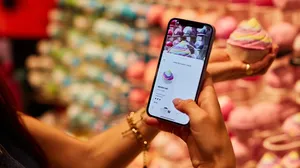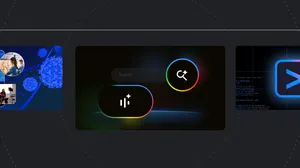How Chromebooks can support your school's Earth Day goals

There are many ways we can work towards reducing the environmental impact of our technology. One that may surprise you—Chromebooks.
As more schools globally use Chromebooks to help bridge the digital gap, provide learning continuity, and more, we've worked to ensure it doesn't come at the expense of the environment. Durable, long-lasting devices with 10 years of security updates, building a repair program, and sustainability curriculum are just four ways Chromebooks help support climate action. Read more details on how we’re doing it below.
Making your hardware last longer
Creating long-lasting, durable hardware starts at the very beginning of the manufacturing process. We partner with device manufacturers like Acer, Asus, CTL, Dell, HP and Lenovo to build Chromebooks with better designs and more post-consumer recycled content to avoid extracting new materials, and reduce e-waste that would otherwise end up in landfills and our ocean.
All devices reach a time when they stop being useful, especially as hardware evolves. Schools can either sell or recycle Chromebooks through their reseller or manufacturer who will often collect them onsite. (Before you turn them over, make sure all devices are un-enrolled first.) The reseller or refurbisher can then buy them outright or trade them for service credits, and resell, use for parts or recycle the Chromebook completely. One manufacturer, CTL, just launched a refurbished Chromebook program to buy old devices, recondition them and then sell them back at a lower cost, providing environmental and cost savings for budget-strapped schools.
Supporting energy efficient software
When it comes to software, we recently announced that we now provide 10 years of automatic updates—the most of any operating system today, ensuring devices run on the latest, most energy-efficient software, with extended security updates, to get the most out of your investment. ChromeOS is a cloud-first platform that helps lower carbon footprints and optimizes for energy efficiency. When Chromebook users benefit from Google's cloud computing, they can be assured Google matches 100% all that computing energy with renewable energy and has an ambitious goal to operate on 24/7 carbon-free energy by 2030. Features like idle mode and adaptive charging can help optimize energy consumption. And ChromeOS Flex can help extend the lifespan of your existing PCs and Macs (for free!), modernizing your fleet and extending the utility of legacy devices.
Reducing plastic in our packaging
When we partner with device manufacturers to build Chromebooks, we think about how we can introduce circularity into Chromebooks—not just by building with post consumer recycled plastics, but also by reducing plastic packaging. Innovation can come from anywhere, but industry transformation involves everyone. In the TV industry, plastic and styrofoam packaging are commonly used to protect fragile products. We've taken what we learned from producing plastic-free packaging in our own Google devices (Pixel, Fitbit, Nest) and used it to support our Google TV partners to reduce waste through better materials, suppliers, and processes. Sharing what we’ve learned along the way is part of how we’re working to make lasting change.
Repairing Chromebooks to last longer
We want Chromebook users to enjoy their devices for many years to come. We're working to build devices so they last as long as possible and reduce e-waste over time. But accidents happen and even the most durable products can get damaged. Building a repair program at your school can help make your Chromebooks last while teaching valuable skills. One school district in Texas, Royse City ISD, started a Connected for Learning program in 2014, which has become the foundation for the Chrome Squad, the district’s tech support and Chromebook repair program. But Royse City ISD students went further, creating tech support videos and a Chromebook support page for parents. The district’s 1:1 Chromebook program is playing a part in keeping devices running for longer periods of time, and also, reducing repairs. Students feel a greater sense of responsibility for their take-home devices, Holt explains. It’s easier to hold students accountable because there is a single user of each device. “Also, it takes fewer devices to run a 1:1 model versus a shared model,” Holt says. “In our case, it takes 20% fewer computers. Fewer computers means a smaller number of repairs.” This focus on repair not only keeps devices out of landfills but also teaches students valuable skills in technology maintenance. Here’s how you can get started in your school.
Advancing the state of Life Cycle Assessments for laptops towards a sustainable IT ecosystem
Measuring environmental impact is essential to being able to track progress. Life Cycle Assessments (LCAs) are key tools for decision-making and demonstrating progress. The ChromeOS team at Google has been collaborating with the Fraunhofer IZM, OEMs, and partners to advance LCA practices for laptops and computers. This work will be presented on June 17th at the Electronics Goes Green conference, along with a workshop exploring the creation of an industry-wide consortium to standardize carbon footprint measurements for data centers. Stakeholders are invited to participate in the consultation process, contributing to more transparent and trustworthy sustainability assessments within the tech industry.
Inspiring climate action with Google tools
We’re making it easier for schools to build a more sustainable future with choices like energy-efficient settings on their Chromebook, recycling old devices responsibly, participating in school-wide sustainability initiatives, or teaching sustainability and climate science with Google Arts & Culture or Google Earth.
Earth Day is a great time to recommit to sustainability in education.






